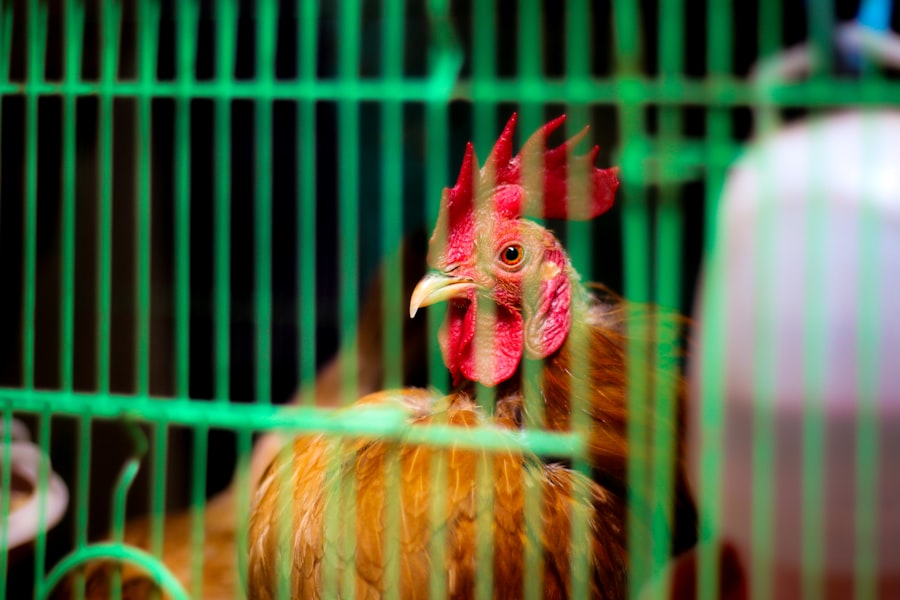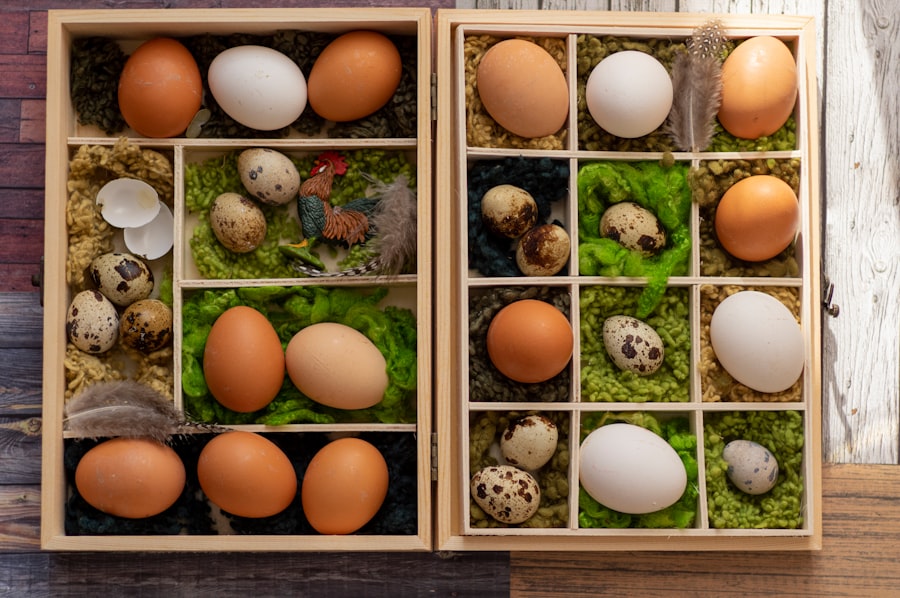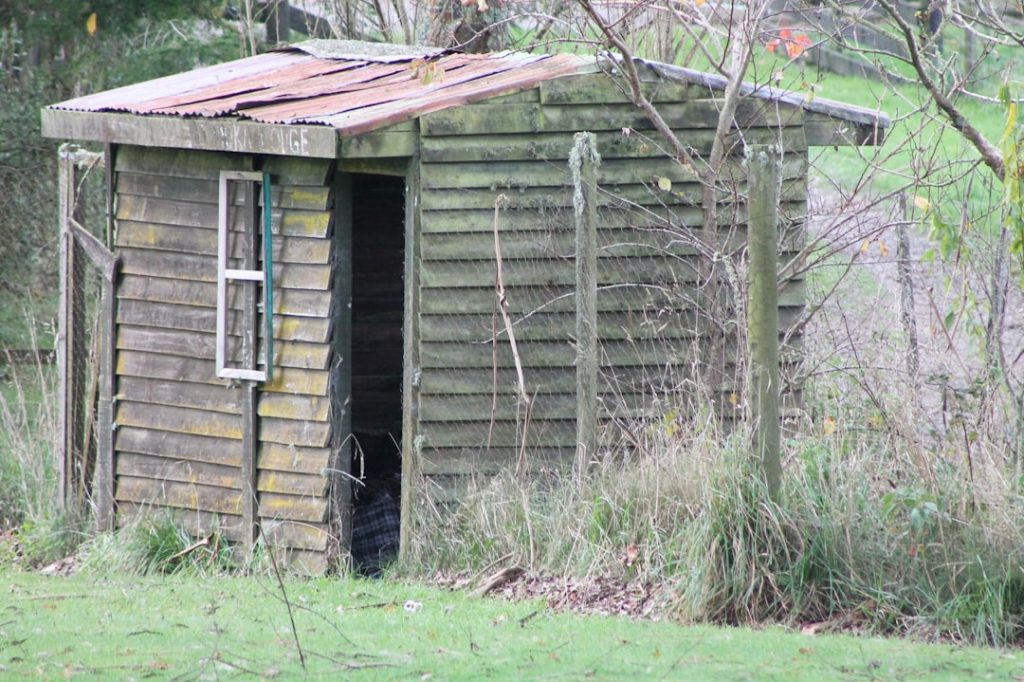Chickens play a crucial role in the success of a Dwarf Fortress. They are a source of food, feathers, and eggs, making them a valuable asset to any fortress. Chickens provide a sustainable source of protein for the dwarves, as well as materials for crafting and trading.
Their eggs can be used for cooking, brewing, and even hatching new chicks to expand the flock. Additionally, chickens can be trained to produce valuable fertilizer for farming, making them an essential part of the fortress’s agricultural ecosystem. Overall, chickens are a versatile and essential resource for any Dwarf Fortress, and understanding their importance is key to maintaining a thriving and sustainable fortress.
Chickens are not only valuable for their products but also for their ability to consume pests and weeds. In a fortress with a thriving agricultural sector, chickens can help control insect populations and keep crops healthy. Their natural foraging behavior allows them to hunt for insects and consume unwanted plants, making them an important part of pest management in the fortress.
Furthermore, chickens can be a source of entertainment and companionship for the dwarves, as they are often amusing to watch and interact with. Understanding the multifaceted importance of chickens in Dwarf Fortress is essential for any fortress manager looking to maximize the potential of their fortress and ensure its long-term success.
Table of Contents
- 1 Choosing the Right Breeds of Chickens for Your Dwarf Fortress
- 2 Building the Ideal Chicken Coop for Your Dwarf Fortress
- 3 Feeding and Caring for Chickens in Dwarf Fortress
- 4 Protecting Chickens from Predators in Dwarf Fortress
- 5 Utilizing Chicken Products in Dwarf Fortress
- 6 Dealing with Common Challenges in Keeping Chickens in Dwarf Fortress
- 7 FAQs
Key Takeaways
- Chickens are important in Dwarf Fortress for their eggs, meat, and feathers, making them a valuable resource for food and crafting.
- When choosing breeds of chickens for your Dwarf Fortress, consider factors such as egg production, meat quality, and climate adaptability.
- Building the ideal chicken coop involves providing enough space, proper ventilation, and protection from predators.
- Feeding and caring for chickens in Dwarf Fortress requires a balanced diet, clean water, and regular health checks.
- Protecting chickens from predators in Dwarf Fortress can be achieved through secure fencing, predator-proof coop design, and the use of guard animals.
- Utilize chicken products in Dwarf Fortress by cooking meals, crafting items, and trading surplus eggs and feathers.
- Common challenges in keeping chickens in Dwarf Fortress include disease outbreaks, food shortages, and predator attacks, which require proactive management and quick solutions.
Choosing the Right Breeds of Chickens for Your Dwarf Fortress
Understanding Breed Characteristics
When selecting chicken breeds for your Dwarf Fortress, it’s essential to consider the unique characteristics of each breed. Different breeds excel in various areas, such as egg production, meat quality, and temperament. By understanding these characteristics, you can choose breeds that align with the goals and needs of your fortress.
Popular Breeds for Dwarf Fortress
Some popular breeds for Dwarf Fortress include the Rhode Island Red, Plymouth Rock, and Leghorn. Each of these breeds has its own strengths and weaknesses. The Rhode Island Red is renowned for its high egg production and hardiness, making it an excellent choice for fortresses focused on sustainable food production. The Plymouth Rock, on the other hand, is a dual-purpose breed that provides both eggs and meat, making it a versatile option for fortresses looking to maximize their resources.
Considering Aesthetic and Cultural Factors
In addition to practical considerations, it’s also important to think about the aesthetic and cultural aspects of chicken breeds. Some fortresses may prioritize breeds with unique or striking appearances, while others may value breeds with historical or cultural significance. By considering these factors, you can choose breeds that not only meet your practical needs but also reflect the values and personality of your fortress.
Building the Ideal Chicken Coop for Your Dwarf Fortress

Building an ideal chicken coop for your Dwarf Fortress is essential for the health and productivity of your chicken population. The coop should provide a safe and comfortable environment for the chickens to roost, lay eggs, and forage. When designing a chicken coop, it’s important to consider factors such as ventilation, insulation, and predator protection.
Adequate ventilation is crucial to prevent moisture buildup and maintain air quality within the coop. Insulation can help regulate temperature and protect the chickens from extreme weather conditions. Additionally, implementing predator-proofing measures such as sturdy fencing and secure doors is essential to protect the chickens from potential threats.
The layout and design of the chicken coop should also prioritize functionality and efficiency. Consider incorporating nesting boxes, roosting perches, and feeding stations to accommodate the natural behaviors of the chickens. Providing ample space for the chickens to move around and exercise is also important for their physical and mental well-being.
Furthermore, integrating the chicken coop into the overall infrastructure of the fortress, such as connecting it to the agricultural area or storage facilities, can streamline operations and make it easier to manage the chicken population. By building an ideal chicken coop that prioritizes safety, comfort, and functionality, you can ensure that your chickens thrive and contribute to the success of your Dwarf Fortress.
Feeding and Caring for Chickens in Dwarf Fortress
Feeding and caring for chickens in Dwarf Fortress requires attention to their dietary needs and overall well-being. Chickens are omnivores and require a balanced diet that includes grains, seeds, insects, and greens. Providing a diverse range of food sources can help ensure that the chickens receive essential nutrients and maintain good health.
Additionally, access to clean water is crucial for the chickens’ hydration and digestion. Regularly checking and refilling water containers is an important aspect of caring for chickens in the fortress. In addition to providing proper nutrition, it’s important to monitor the overall health of the chicken population.
Regularly inspecting the chickens for signs of illness or injury can help prevent outbreaks of disease and ensure early intervention when necessary. Creating a routine for cleaning and maintaining the chicken coop can also contribute to the overall health and well-being of the chickens. By prioritizing proper feeding and care for the chickens in your Dwarf Fortress, you can help ensure that they remain healthy and productive members of your fortress community.
Protecting Chickens from Predators in Dwarf Fortress
Protecting chickens from predators in Dwarf Fortress is essential to maintaining a thriving and sustainable chicken population. Common predators that pose a threat to chickens include foxes, raccoons, birds of prey, and even domestic pets such as cats and dogs. Implementing predator-proofing measures such as sturdy fencing, secure doors, and predator deterrents can help minimize the risk of predation.
Additionally, creating a secure nighttime roosting area within the chicken coop can provide an extra layer of protection against nocturnal predators. In addition to physical barriers, it’s important to consider strategies for deterring predators from approaching the chicken coop in the first place. This may include using scare tactics such as noise makers or visual deterrents to discourage predators from getting too close to the coop.
Furthermore, maintaining a vigilant watch over the chicken population and surrounding area can help identify potential threats early on and take proactive measures to protect the chickens. By prioritizing predator protection measures in your Dwarf Fortress, you can help ensure the safety and security of your chicken population.
Utilizing Chicken Products in Dwarf Fortress

Eggs: A Versatile Ingredient
Eggs are a versatile ingredient that can be used in various ways. They can be used in cooking, brewing, and even as a source of income through trade with other settlements.
Feathers: A Crafting Essential
Feathers from chickens can be used for crafting items such as quill pens, arrows, or even decorative ornaments.
Meat and Manure: Sustainable Resources
The meat from chickens provides a sustainable source of protein for the dwarves’ diet and can be preserved through methods such as smoking or salting for long-term storage. Furthermore, chicken manure is a valuable fertilizer that can be used to enrich soil in agricultural areas, promoting healthy crop growth and maximizing harvest yields.
Dealing with Common Challenges in Keeping Chickens in Dwarf Fortress
Keeping chickens in Dwarf Fortress comes with its own set of challenges that require careful management and problem-solving. Common challenges include disease outbreaks, infestations of pests such as mites or lice, and conflicts within the chicken population itself. Implementing proactive measures such as regular health checks, pest control strategies, and providing adequate space and resources for the chickens can help mitigate these challenges.
Additionally, managing the population size of chickens is important to prevent overcrowding and maintain a healthy balance within the coop. This may involve culling older or unproductive chickens or expanding the coop space as needed to accommodate a growing population. By addressing these common challenges with proactive management strategies, you can ensure that your chicken population remains healthy and productive in your Dwarf Fortress.
In conclusion, understanding the importance of chickens in Dwarf Fortress is essential for maximizing their potential as valuable resources for food, materials, pest control, and more. Choosing the right breeds of chickens that align with the goals and values of your fortress is crucial for building a thriving chicken population. Building an ideal chicken coop that prioritizes safety, comfort, and functionality is essential for maintaining a healthy environment for the chickens.
Feeding and caring for chickens requires attention to their dietary needs and overall well-being to ensure their health and productivity. Protecting chickens from predators is crucial for maintaining a thriving population within your fortress community. Utilizing chicken products in various ways can benefit the fortress community by providing food, materials, fertilizer, and more.
Dealing with common challenges in keeping chickens requires proactive management strategies to address issues such as disease outbreaks, pest infestations, population management, and more. By addressing these key aspects of keeping chickens in Dwarf Fortress, you can ensure that they remain an essential and valuable resource for your fortress community.
If you’re interested in learning more about keeping chickens, you might want to check out this article on where to put a chicken coop. It offers valuable insights on the best location for your coop to ensure the health and safety of your chickens. This information can be especially helpful for players of Dwarf Fortress who want to create a realistic and functional chicken coop in the game.
FAQs
What is Dwarf Fortress?
Dwarf Fortress is a popular indie game that simulates the management and development of a dwarven outpost or fortress in a fantasy world.
How do you keep chickens in Dwarf Fortress?
To keep chickens in Dwarf Fortress, you will need to build a chicken coop or a designated area for them to roam. You will also need to ensure they have access to food and water to keep them healthy and productive.
What do chickens eat in Dwarf Fortress?
Chickens in Dwarf Fortress eat a variety of food, including seeds, plants, and small animals. It’s important to provide them with a steady supply of food to keep them healthy and productive.
What are the benefits of keeping chickens in Dwarf Fortress?
Keeping chickens in Dwarf Fortress can provide a steady supply of eggs and meat for your fortress. They can also be used for breeding and trading with other civilizations.
How do you protect chickens from predators in Dwarf Fortress?
To protect chickens from predators in Dwarf Fortress, you can build walls and doors around their coop or designated area. You can also assign a dwarf to act as a “chicken caretaker” to keep an eye on them and protect them from harm.
Meet Walter, the feathered-friend fanatic of Florida! Nestled in the sunshine state, Walter struts through life with his feathered companions, clucking his way to happiness. With a coop that’s fancier than a five-star hotel, he’s the Don Juan of the chicken world. When he’s not teaching his hens to do the cha-cha, you’ll find him in a heated debate with his prized rooster, Sir Clucks-a-Lot. Walter’s poultry passion is no yolk; he’s the sunny-side-up guy you never knew you needed in your flock of friends!







